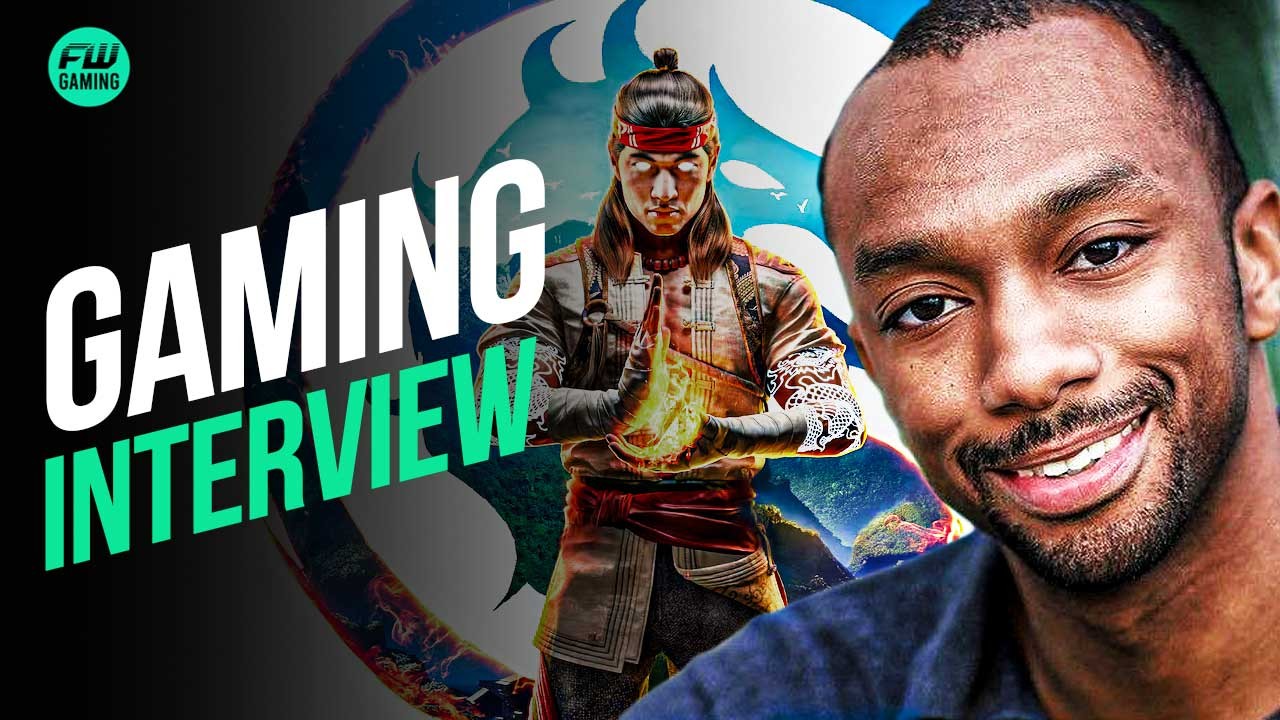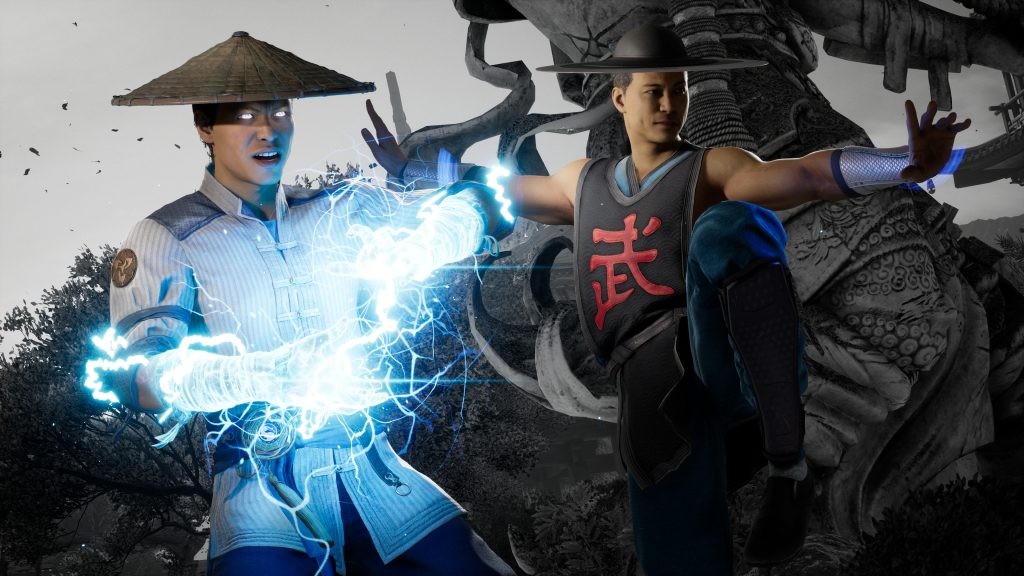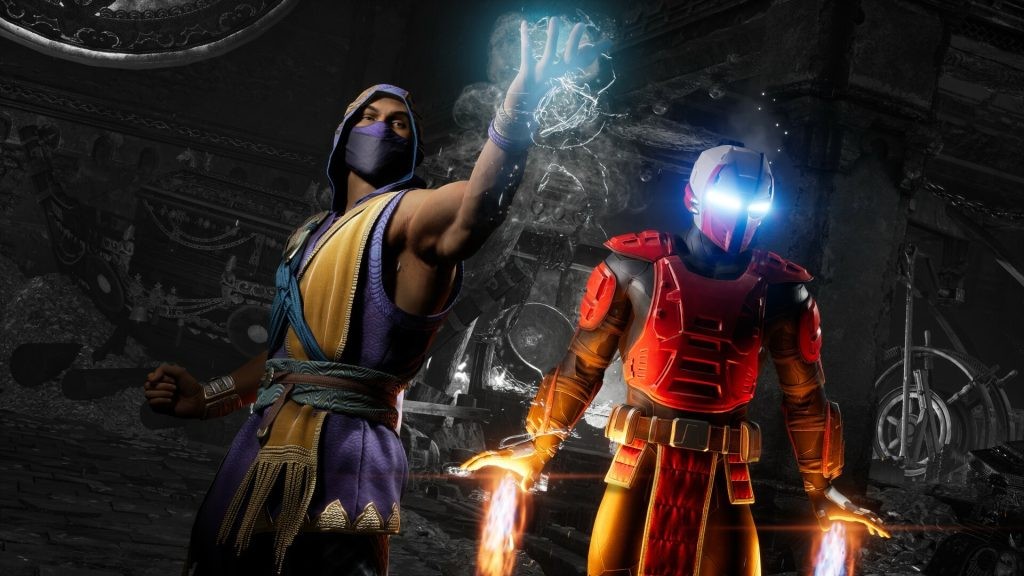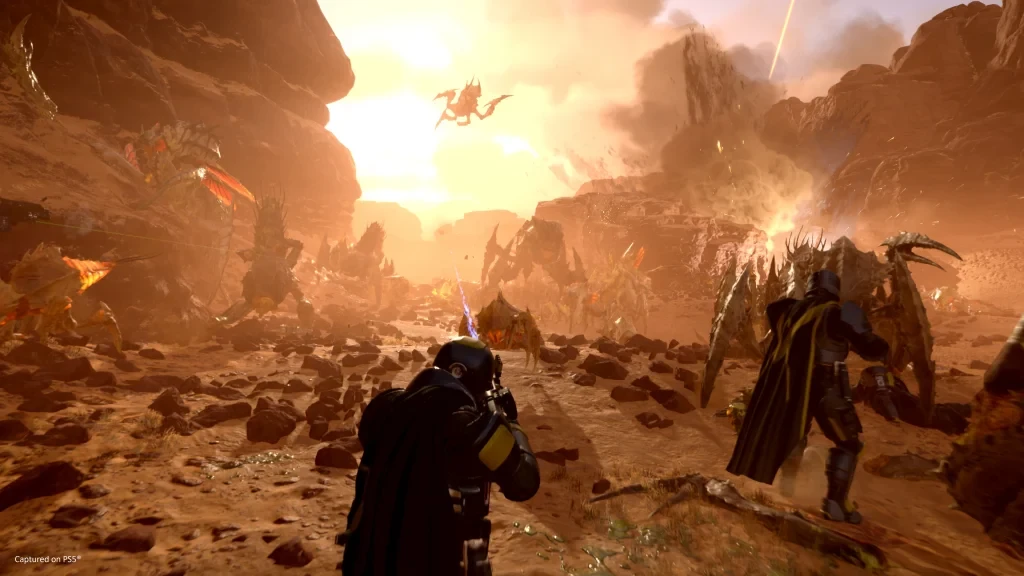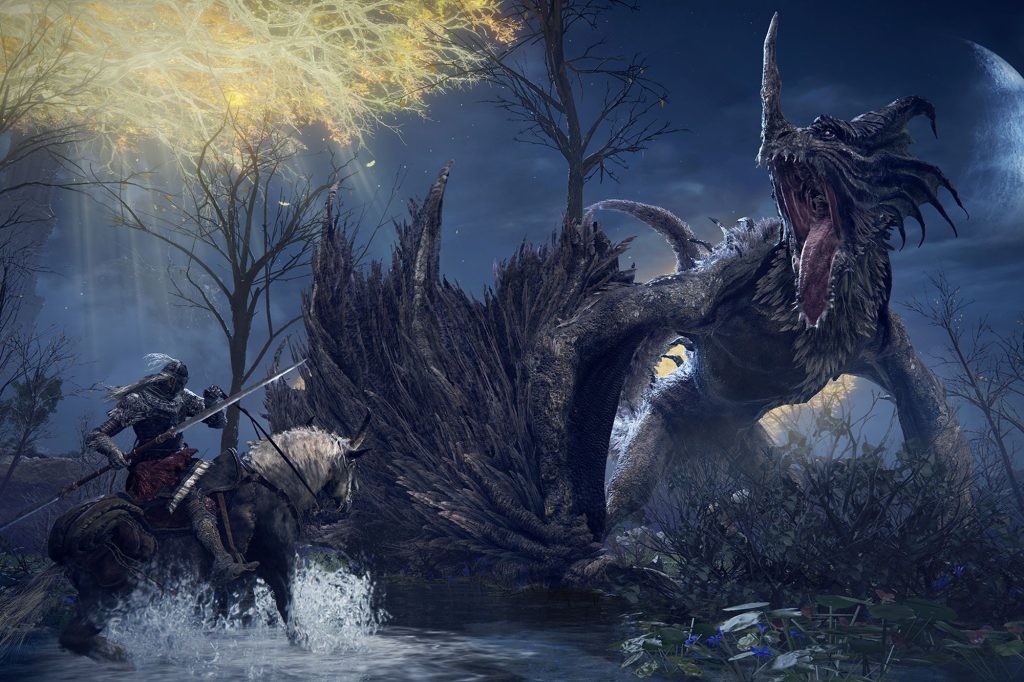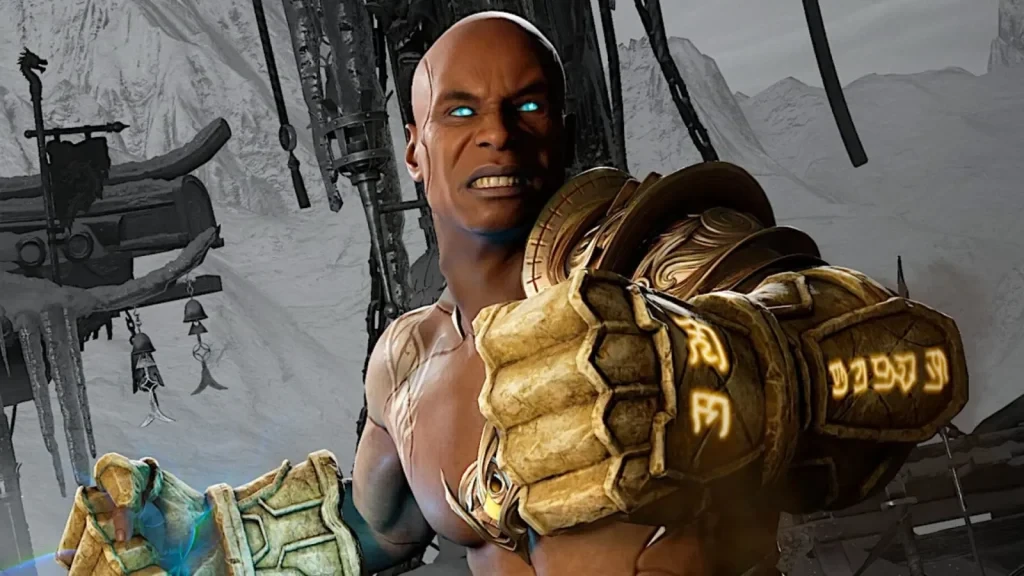The score of a video game is as important as any other facet of the game. From graphics to gameplay and more, sound design and the accompanying soundtrack/score all melt together to create something beautiful – or ugly, depending on the game in question – and as such, we were lucky enough to talk with Wilbert Roget II, the composer of Mortal Kombat 1, Star Wars Outlaws and many more!
An Insight to Mortal Kombat 1, Helldivers 2 & More
FW. For those unaware, would you be so kind as to explain who you are and what you do?
My name is Wilbert Roget, II, and I’m a composer for video games and, most recently, Japanese anime! I’ve had the privilege of scoring AAA games in several franchises, such as Mortal Kombat, Star Wars, and Call of Duty, and I write in a variety of genres, working with orchestras, vocalists, and solo musicians from around the world.
FW. How was your approach different when scoring Mortal Kombat 1 compared to your other NetherRealm projects?
Mortal Kombat 1 was unique in that it has a much stronger focus on Outworld culture and politics, unlike Mortal Kombat 11 which featured several realms and periods. I had the opportunity to create a more nuanced sound for Outworld, using world instruments and vocalists to provide a detailed glimpse at that culture. I even wrote bespoke diegetic music (i.e. pieces that exist within the world and can be heard by the characters) for a few scenes, referencing character themes I’d already established to provide a hint at their historical significance.
I leaned further into the classic kung fu movie aesthetic as well, with a greater focus on percussion and world instruments throughout; I saved the Wagnerian epic choral orchestra sound (that I had developed for Mortal Kombat 11 until the finale of the game.
FW. What’s the most challenging aspect of composing for a video game compared to other media?
Game scoring differs from linear media such as film and TV in that we don’t have tight, perfectly synchronized control over music playback during gameplay. We have to find ways to abstract our writing and form so that the game can arrange and adjust music in real time – for instance, music in Mortal Kombat games typically begins with simple percussive riffs for the intro dialogue, then seamlessly transitions into increasingly aggressive music for each round of gameplay, finally culminating in a high-intensity loop for the “Finish Him!” sequence and then wrapping up with an ending stinger.
FW. Who are your idols and biggest inspirations, and who or what started you on this path?
I grew up playing classical piano, but it wasn’t until high school that I properly discovered video game music; once I played Final Fantasy VII, I immediately decided to become a game composer myself. My earliest inspirations were Nobuo Uematsu, Yasunori Mitsuda, and Hitoshi Sakimoto, composers of the classic Final Fantasy series, Chrono Trigger, and Vagrant Story respectively.
Later I discovered film and anime composers like Yoko Kanno, Terence Blanchard, Thomas Newman, and, of course, John Williams. I’ve also been heavily inspired by artists outside of the scoring world, particularly Björk, Soundgarden, Wynton Marsalis, and Radiohead. I’ve always drawn heavy influence from Slavic folk music, particularly the Bulgarian choral traditions in their use of harmony and rhythm.
FW. What drew you towards wanting to compose for NetherRealm and other video game developers/properties?
My first arcade memory was playing the original Mortal Kombat at my friend’s birthday party; I was immediately drawn to the game for its sinister vibe and realistic graphics, and obsessively consumed everything Mortal Kombat all throughout middle school – the games, the movies, the cartoons, and basically anything martial arts related. Decades later, Mortal Kombat (2011) rebooted the franchise with a new focus on cinematic presentation in the games, and once again I was hooked.
That said, I will mention that I’m a huge fan of FromSoftware’s games, particularly Bloodborne and Elden Ring – so I’d of course love the opportunity to work with Miyazaki-san on a new project!
After scoring Call of Duty: WWII, I found out that one of my sound designer friends from Sledgehammer Games had worked on Mortal Kombat X, so I asked him for an introduction to the NetherRealm Studios team. It turned out I was already on their short list of composers to contact, and so they commissioned me to write them a demo for Mortal Kombat 11. This demo piece ended up being the main theme for Mortal Kombat 11, “A Matter of Time,” and I was hired to become the new principal composer of the game.
FW. What makes a great score in your opinion?
A great score is a combination of a unique well-developed sound, memorable moments, and an inseparable relationship with the game, film, or show itself. I love a score that sounds like it wouldn’t work as well anywhere else except with that particular game; regardless of genre, or whether it’s melodic or textural.
I also appreciate a good bit of “messiness” in a score; music that doesn’t neatly fit into preconceived stereotypes or expectations, and challenges the listener to make sense of it in context. Too often we worry so much about music fitting the scene on a surface level that we miss opportunities to be unique and memorable – our listeners appreciate boldness, quality and storytelling, not adherence to stereotypes.
FW. Other than your own work, what would be your favorite video game score/soundtrack?
As I mentioned earlier, I was a huge fan of Japanese RPG scores, particularly Final Fantasy VI, Vagrant Story, and newer titles like the Final Fantasy XIII series. Shadow of the Colossus, The Last Guardian, L.A. Noire, and Heavy Rain are some of my favorite orchestral game scores, with Tom Clancy’s Splinter Cell: Chaos Theory, and the Metal Gear series being my favorite hybrid and electronic soundtracks. As far as fighting games go, I loved Mortal Kombat 3, Virtua Fighter 2, Virtua Fighter 3, Street Fighter Alpha 2, Street Fighter III: 3rd Strike, Soul Blade, and basically every Tekken soundtrack ever written!
FW. At what point of development were you brought on board to compose, and did your score directly change the approach of the narrative or visual designs being implemented?
I started work on Mortal Kombat 1 early on in development, with cutscenes still in a beginning state. While I doubt my music changed the developers’ approach to the designs, they did create opportunities for me to write diegetic music in a few scenes! For instance, there’s a singer in the background during the feast of Jerrod scene, and so the developers asked me to write a piece for her with some light instrumental backing. I wrote a duet in Greek for voice and oud, performed by Andrijana Janevska and Stelios Varveris respectively, and in the final scene, the on-screen character emotes and lip-syncs somewhat to the song.
FW. What would be your dream project, whether it would be in film, TV, or video games?
I’m grateful to have already worked on several well-known franchises, so I don’t necessarily have any franchises I’d specifically want to work on. My current goal is to work on more original IP, establish new sounds, and explore new genres. My score to the upcoming Pacific Drive will hopefully surprise listeners with its moody ambient vibe, focusing on guitar and synth textures rather than the orchestral sounds I’m mostly known for.
That said, I will mention that I’m a huge fan of FromSoftware’s games, particularly Bloodborne and Elden Ring – so I’d of course love the opportunity to work with Miyazaki-san on a new project!
FW. And following on from that question, are there any projects you’d have liked to have scored, given the chance, and how would you have approached it differently to what we ended up with?
Since so much of my enjoyment of games is from the music, I tend not to play titles whose music I don’t already know I’ll love. I can’t really think of any scores that I would’ve possibly done better than the original composer; I’m well aware that every soundtrack is simply the composer’s best compromise between budget, time, and the client’s direction.
FW. Fighting games can live and die from their OST and scores. How do you ensure you have the right sound to go alongside the intensity of the combat at the right times? And is there a different approach to constructing the score for the campaign compared to the invasion mode or online modes?
In Mortal Kombat 1, the score basically has four parts: the main theme, Story mode (campaign) cutscenes, in-game stages, and Invasions mode. I wrote the main theme first, then scored Story mode scene by scene. Stage music composers reference the Story mode material and also freely develop their own material for each level. They make bespoke melodies and instrumental palettes that reflect each environment as they hear it.
The approach to Story mode’s score is focused on supporting emotional undercurrents and transitions in each linear scene whereas stage music is focused more on ‘vibe’ and melodic hooks to support the various ‘sections’ of the fight loop the player goes through. As previously mentioned, in-game music keeps pace with the fights with seamless on-beat transitions from the introduction riffs, to each successive round and round ending, culminating in the highest-intensity “Finish Him!” loops and then match endings.
For Invasions, NetherRealm Studios Dan Forden, Audio Director, and Rich Carle, Director of Audio, wrote a series of minimalistic background pieces for each Mesa that reflect material developed by both myself and the other composers.
FW. You’re currently working on Star Wars Outlaws, a game that has a huge amount of people excited. How do you approach scoring an open-world game based on the most popular license of all time, compared to the most graphic fighting game ever?
I’d already written several hours of Star Wars game music, from Star Wars: The Old Republic to Vader Immortal: A Star Wars VR Series and the unreleased Star Wars: First Assault, so I was very familiar with the franchise. While composing in the strictly traditional John Williams style was a fantastic privilege on the Vader Immortal score, I later decided to focus on new and original sounds rather than model compositions.
I have four scores coming out in 2024: Helldivers 2 is releasing on February 8th, and Pacific Drive on February 22nd. Star Wars: Outlaws releases at some unannounced point in 2024. I’m also excited to announce my first anime score, Gundam: Requiem for Vengeance!
I turned down a few other franchise scores before I was approached for Star Wars: Outlaws, a title that features an angle previously unexplored in Star Wars games: the criminal underground. So instead of writing in a strict John Williams style, I tried to imagine how he might approach this new setting and augmented that with my own modern take on stealth heists and scoundrel characters. The score has a continuum of produced elements, such as analog synths, found sounds (coins, scrap metal, and bottles), and world instruments, as well as traditional orchestration influenced primarily by Williams’ classic score to Star Wars: A New Hope.
To compare Star Wars: Outlaws to my Mortal Kombat scores, both make heavy use of leitmotif, though my Star Wars: Outlaws score has more fully developed character and faction themes. We also have a complex systemic music system, which I believe is a first for the Star Wars game franchise. I’m very excited to share more in the coming months!
FW. Obviously, this isn’t your first time composing for either a Mortal Kombat game or a Star Wars property in various mediums. How does returning to a familiar property impact you in your work? Is it easier than starting completely fresh on an unknown entity?
Working in a franchise isn’t necessarily easier, it’s just a different set of creative parameters. Composers need to consider previous entries in the franchise and the expectations of both developers and players, deciding where they will fit into the body of scores and how they might depart from the norms. Similarly, when returning to a franchise, we make decisions on how to evolve the sound beyond our own previous work.
When scoring a new original IP, we’re free to answer musical questions in our own words, based on our own experiences and strengths rather than filtering ideas through another composer’s lens. It can be greatly liberating, but it can take a bit more time to develop, and it certainly demands a good deal more confidence and bravery from both the composer and the developer.
FW. Of all the work you’ve done in the video game industry, what is your personal highlight so far?
I don’t usually like to play favorites as all of my scores mean something special to me, and I’m very grateful to have written for so many different franchises! Mortal Kombat is a delight to write for because of the creative freedom the NetherRealm team gives me – and of course, my inner fanboy who still can’t believe I’m working on this!
Star Wars and Call of Duty as well have been incredible to write for, and it’s humbling to reach so many millions of players with my music. Pacific Drive has been an amazing experience and a creatively liberating change from my orchestral scores – I can’t wait for players to hear what we’ve come up with on this one!
FW. Lastly, what does the future hold for you? Any upcoming projects that we may not know about?
I have four scores coming out in 2024: Helldivers 2 is releasing on February 8th, and Pacific Drive on February 22nd. Star Wars: Outlaws releases at some unannounced point in 2024. I’m also excited to announce my first anime score, Gundam: Requiem for Vengeance! I’ll have more to say about this in the coming months, but it’s been a decades-long dream of mine to work on Japanese anime, and I couldn’t be happier with the result. Many of my favorite Japanese composers have worked on Gundam as well, including Yoko Kanno, Kou Otani, Hiroyuki Sawano, and Kenji Kawai, so I feel unbelievably privileged to contribute to the franchise!
Follow us for more entertainment coverage on Facebook, Twitter, Instagram, and YouTube.

